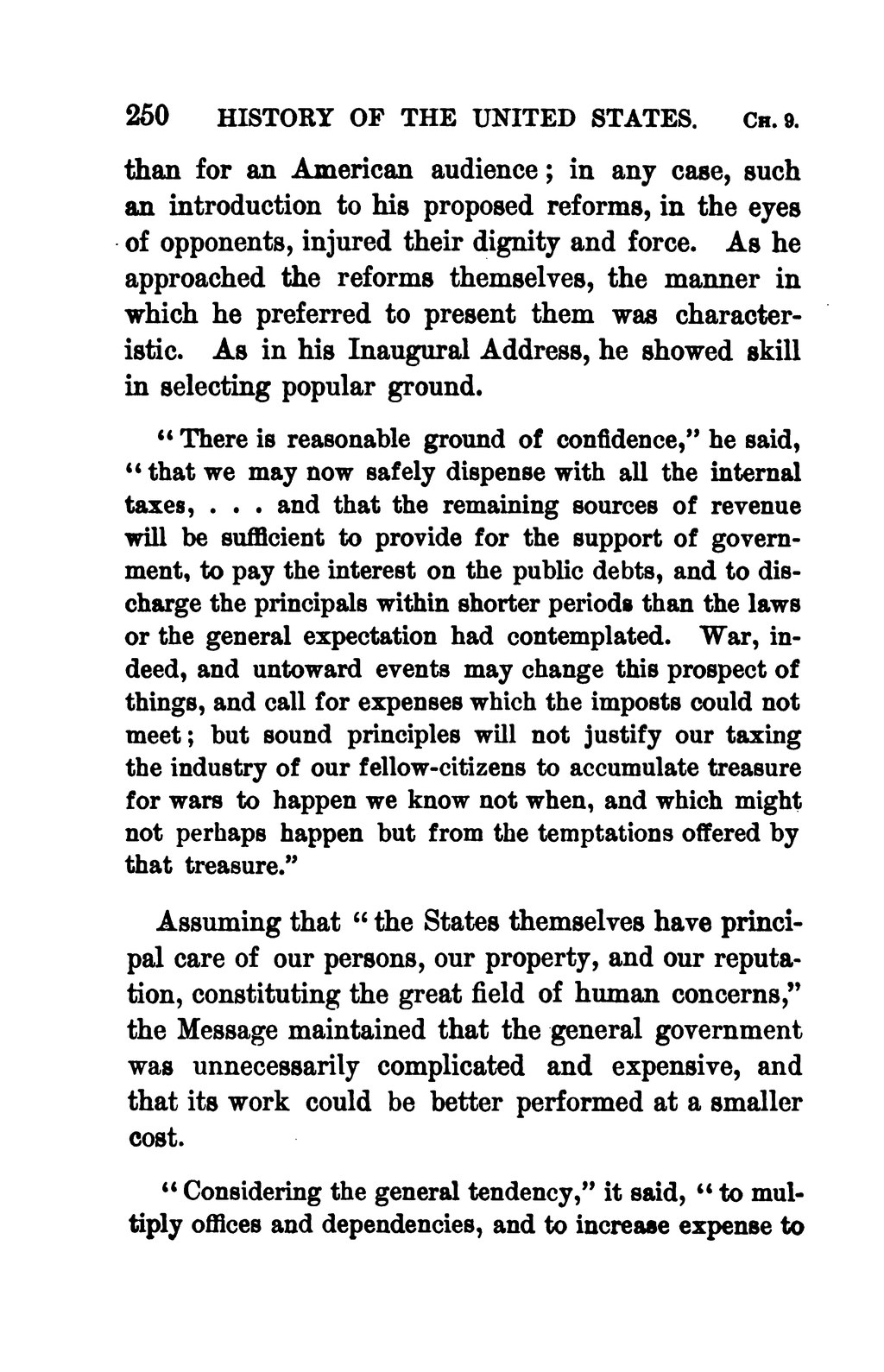250
HISTORY OF THE UNITED STATES.
Ch. 9.
than for an American audience; in any case, such an introduction to his proposed reforms, in the eyes of opponents, injured their dignity and force. As he approached the reforms themselves, the manner in which he preferred to present them was characteristic. As in his Inaugural Address, he showed skill in selecting popular ground.
- "There is reasonable ground of confidence," he said, "that we may now safely dispense with all the internal taxes, . . . and that the remaining sources of revenue will be sufficient to provide for the support of government, to pay the interest on the public debts, and to discharge the principals within shorter periods than the laws or the general expectation had contemplated. War, indeed, and untoward events may change this prospect of things, and call for expenses which the imposts could not meet; but sound principles will not justify our taxing the industry of our fellow-citizens to accumulate treasure for wars to happen we know not when, and which might not perhaps happen but from the temptations offered by that treasure."
Assuming that "the States themselves have principal care of our persons, our property, and our reputation, constituting the great field of human concerns," the Message maintained that the general government was unnecessarily complicated and expensive, and that its work could be better performed at a smaller cost.
- "Considering the general tendency," it said, "to multiply offices and dependencies, and to increase expense to
